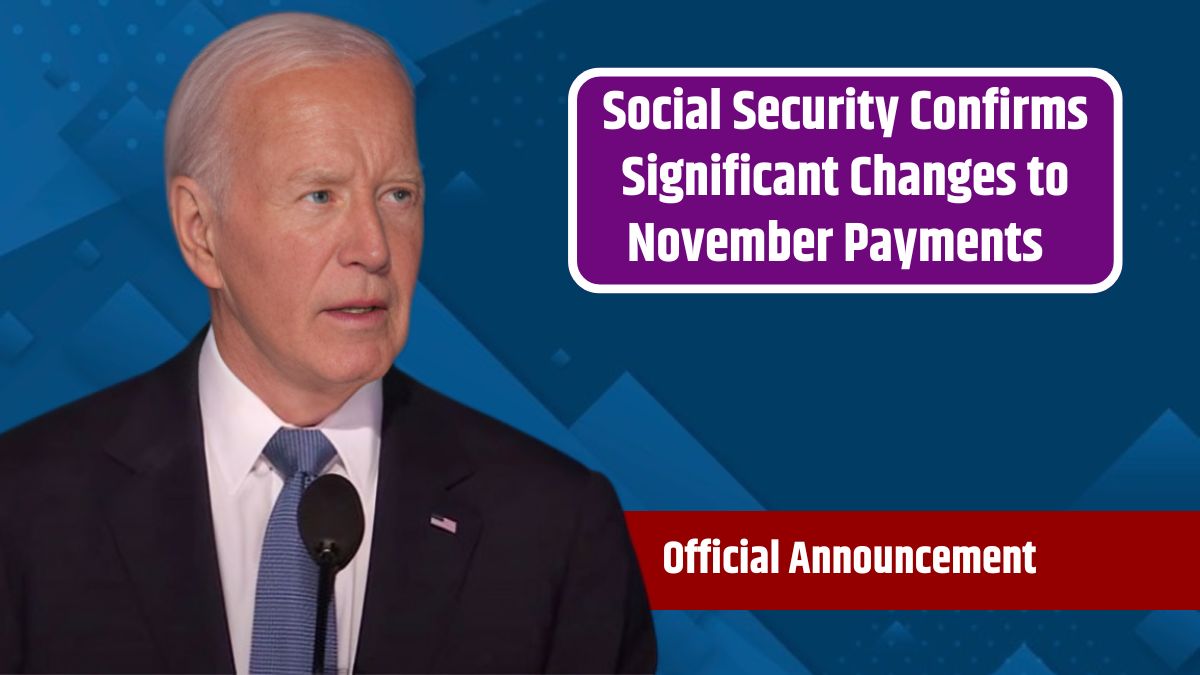The Social Security Administration (SSA) is preparing to issue a new round of payments to retirees and other beneficiaries on Wednesday, September 11th. These payments are part of the SSA’s monthly distribution of benefits under the Retirement, Survivors, and Disability Insurance (RSDI) and Supplemental Security Income (SSI) programs. Beneficiaries who have met all the necessary requirements, including reaching full retirement age and meeting the contribution guidelines, will receive their payments on the designated dates.
It’s important for recipients to know how the payment schedule works to ensure they receive their payments on time and plan their finances accordingly. Let’s break down how the SSA payment system operates and what beneficiaries can expect this month.
Payment Process
Millions of Social Security recipients rely on monthly benefits to cover basic living expenses, especially retirees and those enrolled in disability and supplemental income programs. The SSA has established a clear payment schedule to ensure beneficiaries receive their funds on time.
The payment schedule follows a consistent format each month, with beneficiaries receiving their checks across five rounds of payments:
- 1st of the month: Payments are issued to SSI recipients.
- 3rd of the month: RSDI beneficiaries who started receiving benefits before May 1997 get their payments.
- Second, third, and fourth Wednesdays: Payments are made to RSDI beneficiaries based on their birth dates.
Here’s how the payment breakdown works for September:
| Birth Date Range | Payment Date |
|---|---|
| 1st to 10th | Wednesday, Sept 11 |
| 11th to 20th | Wednesday, Sept 18 |
| 21st to 31st | Wednesday, Sept 25 |
If a payment is late, beneficiaries should wait at least three business days before contacting SSA for assistance.
Payment Amounts
The amount beneficiaries receive each month depends on several factors, including their work history, Social Security contributions, and the age at which they began receiving benefits. Here’s a look at what recipients can expect:
- Retired Workers: The average monthly payment is approximately $1,900 for workers who have accumulated 40 work credits (typically earned over ten years). Beneficiaries who started receiving payments before full retirement age (FRA) may receive a lower amount. However, those who wait until the FRA of 67 or delay benefits until age 70 can receive higher payments.
- Retirees who delay until age 67 can receive up to $3,822 per month.
- Those who delay even further, until age 70, can receive a maximum benefit of $4,873 monthly.
- Social Security Disability Insurance (SSDI) Recipients: On average, SSDI recipients receive $1,537 per month. However, those who made maximum taxable contributions before becoming disabled can receive up to $3,822 monthly.Additionally, SSDI beneficiaries who meet the SSA’s criteria for blindness are eligible for payments of up to $2,590 monthly.
Payments
While the average Social Security payment is helpful, knowing how to maximize your benefits can make a significant difference in your retirement or disability income. Here are some strategies for receiving the highest possible benefit:
- Delay Retirement: By waiting until full retirement age or even later, you can increase your monthly payments. For example, retiring at age 67 gives you full benefits, while waiting until age 70 provides the highest possible benefit.
- Work Longer: Social Security payments are calculated based on your highest 35 years of earnings. If you work beyond 35 years, especially at higher wages, you can replace lower-earning years with higher ones, increasing your average monthly payment.
- Keep Contributing: Your Social Security contributions, based on your earnings, directly impact your benefit amount. The more you earn and contribute, the higher your monthly checks will be.
Payment Is Late
Social Security payments typically arrive on the designated dates, but sometimes delays happen due to mailing issues or other problems. If your check doesn’t arrive on the expected date, wait at least three business days before contacting the SSA. You can reach the SSA’s customer service for assistance or check your My Social Security account for more information about your payment status.
Social Security benefits are a lifeline for millions of Americans, providing critical financial support to retirees, disabled individuals, and survivors. Knowing the payment schedule and the factors that affect your benefit amounts can help you better plan your finances and maximize your benefits. As the SSA continues to manage and deliver these payments, beneficiaries can rely on consistent monthly support, whether they are receiving retirement benefits, disability assistance, or supplemental income.
FAQs
When will Social Security beneficiaries receive their payments in September?
Payments will be made on September 11th, 18th, and 25th, depending on birth dates.
How much will I receive from Social Security this month?
Amounts vary, but retired workers can receive up to $4,873 depending on age and contributions.
What should I do if my Social Security payment is late?
Wait three business days and then contact SSA customer service.
Can I maximize my Social Security benefits?
Yes, delaying retirement and working longer can increase your benefits.
What day do SSI recipients get paid?
SSI recipients are paid on the 1st of each month.









